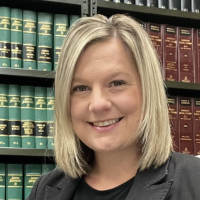Mishawaka Misdemeanor Lawyer, Indiana
Not enough matches for Mishawaka Misdemeanor lawyer.
Below are all Mishawaka Criminal lawyers.
Kayla Anne Christofeno
✓ VERIFIEDCriminal, Estate
Kayla Christofeno is a skilled criminal defense attorney with experience defending many different types of crimes. She is a lifelong resident of Elkh... (more)
David Arthur Wemhoff
Criminal, Accident & Injury, Estate, Intellectual Property
Status: In Good Standing Licensed: 36 Years
FREE CONSULTATION
CONTACTGeorge E. Horn
Litigation, Lawsuit & Dispute, White Collar Crime, Criminal
Status: In Good Standing Licensed: 37 Years
George Edward Horn
Education, Litigation, Wills & Probate, Criminal
Status: In Good Standing Licensed: 37 Years
Martin A. McCloskey
Accident & Injury, Criminal, Divorce & Family Law, Lawsuit & Dispute
Status: In Good Standing
William J. Cohen
Criminal, Insurance, Accident & Injury, DUI-DWI, Personal Injury
Status: In Good Standing Licensed: 46 Years
Marvin Lopata
Landlord-Tenant, Traffic, Lawsuit & Dispute, Divorce & Family Law, Criminal
Status: In Good Standing Licensed: 46 Years
Stephen G Drendall
Family Law, Criminal, Consumer Protection, Bankruptcy
Status: In Good Standing Licensed: 45 Years


